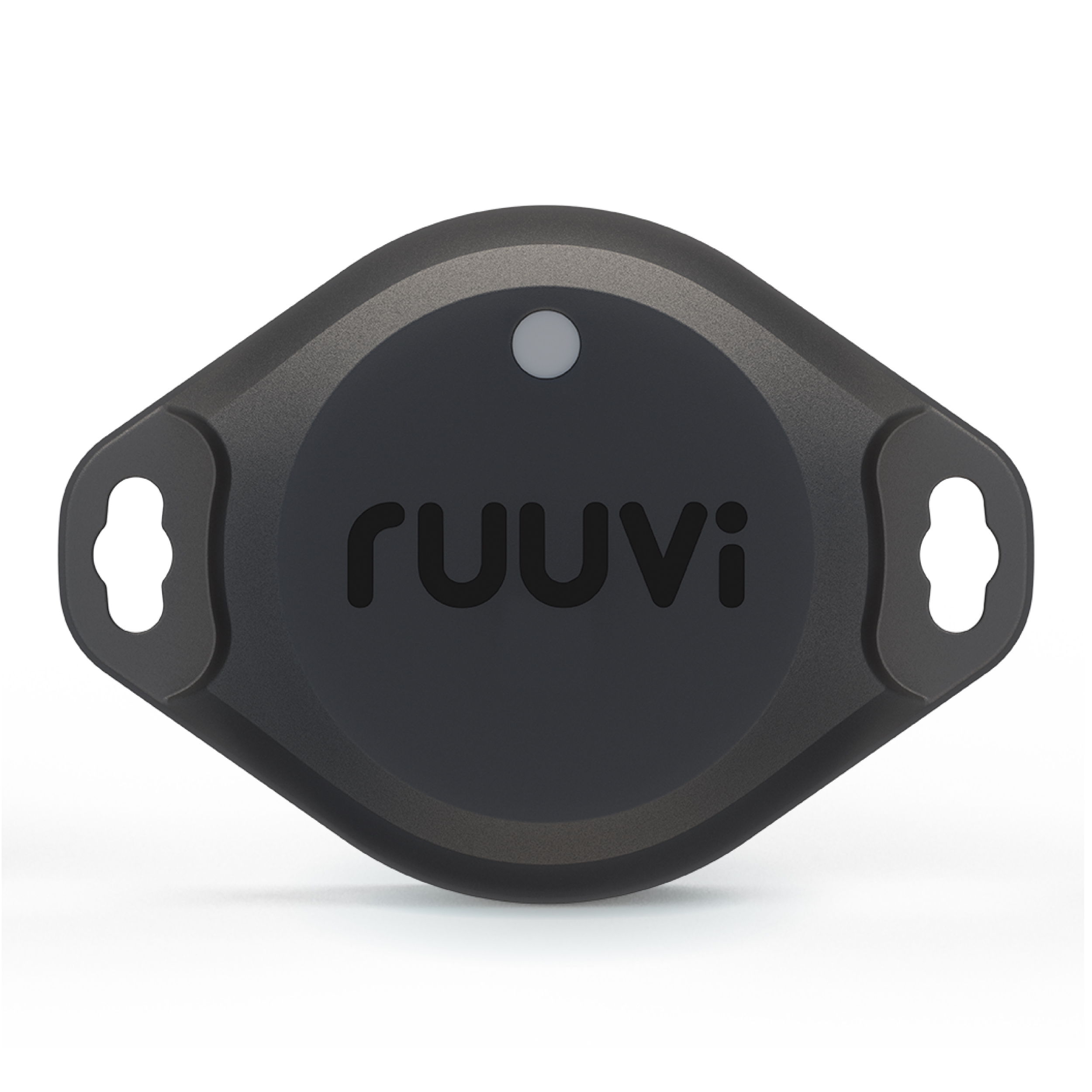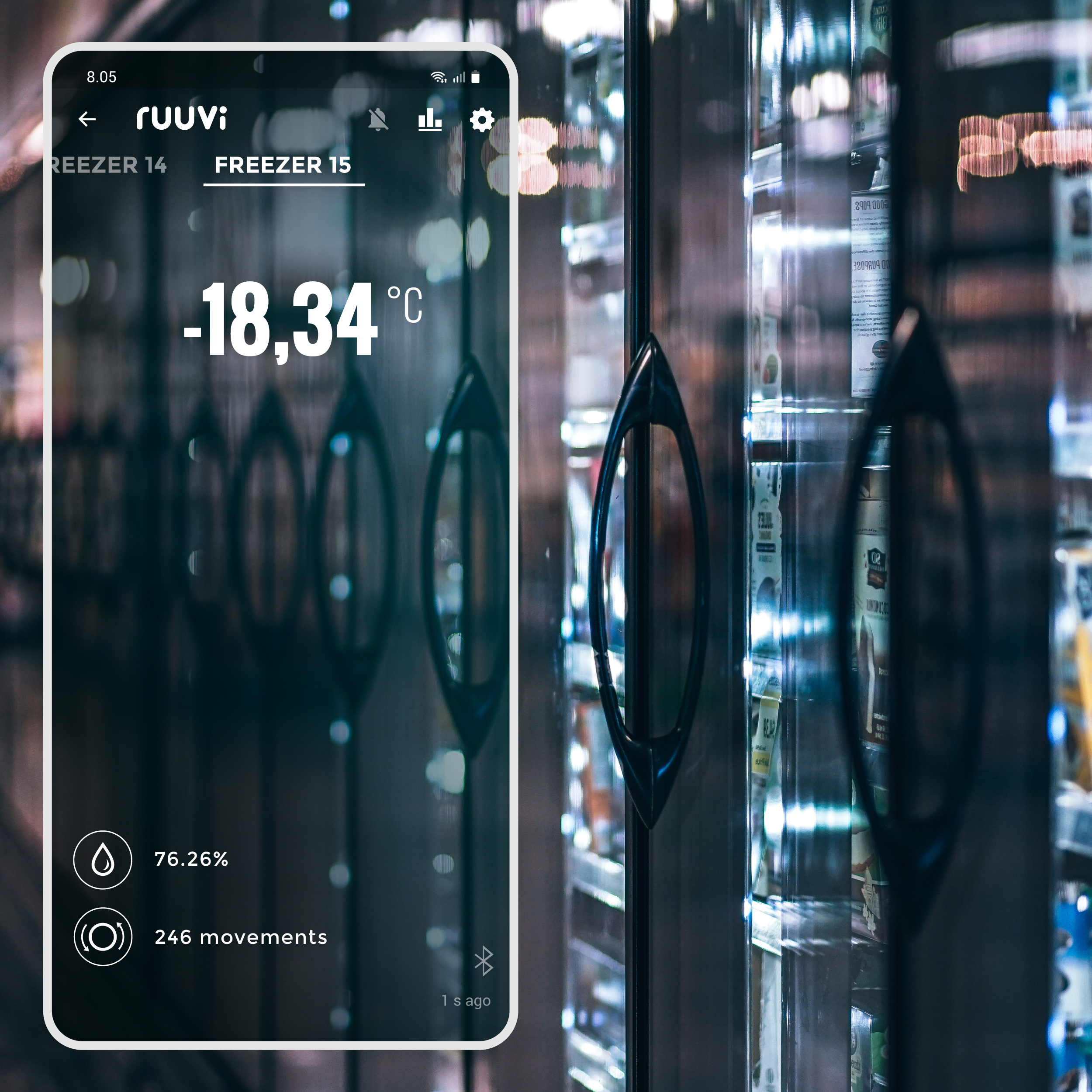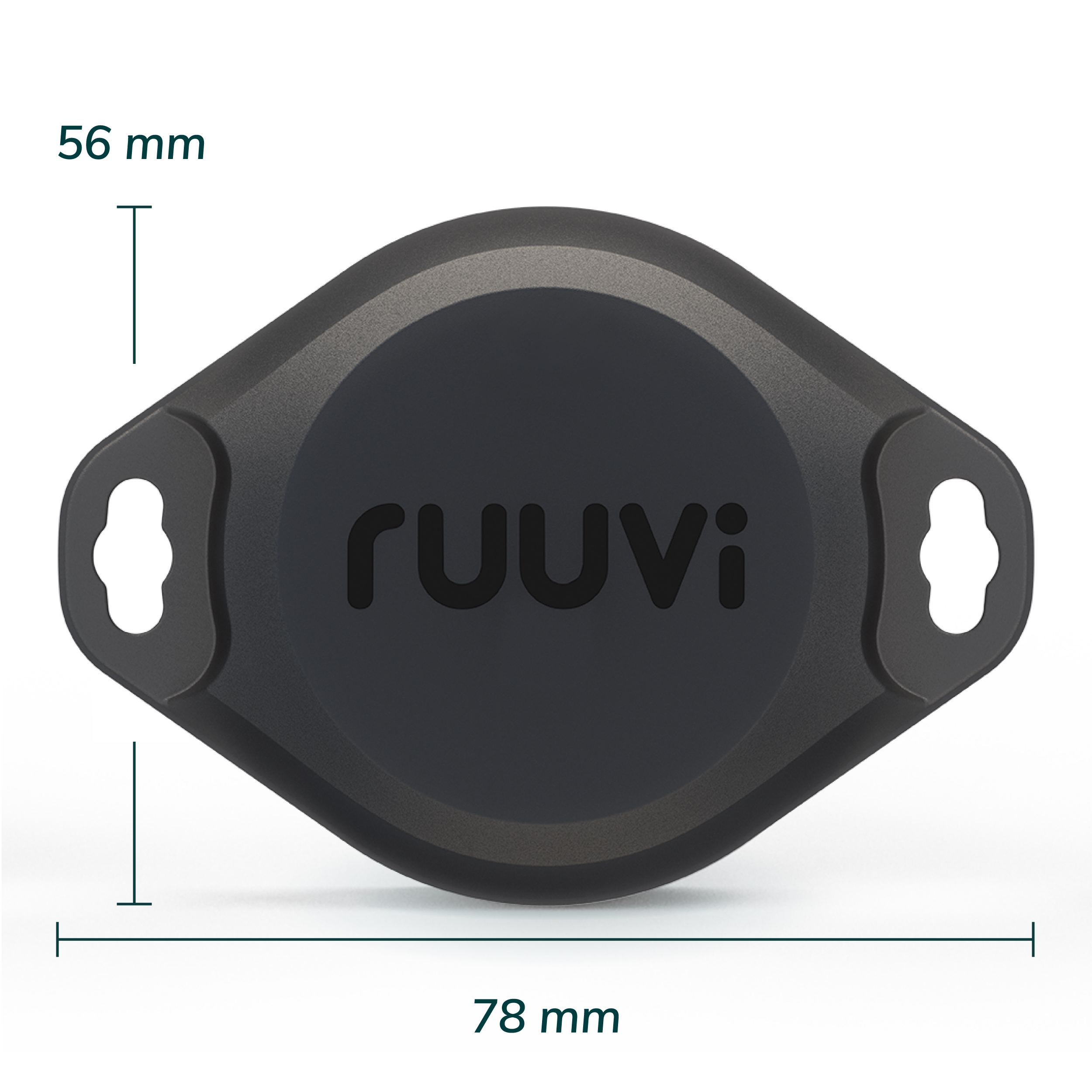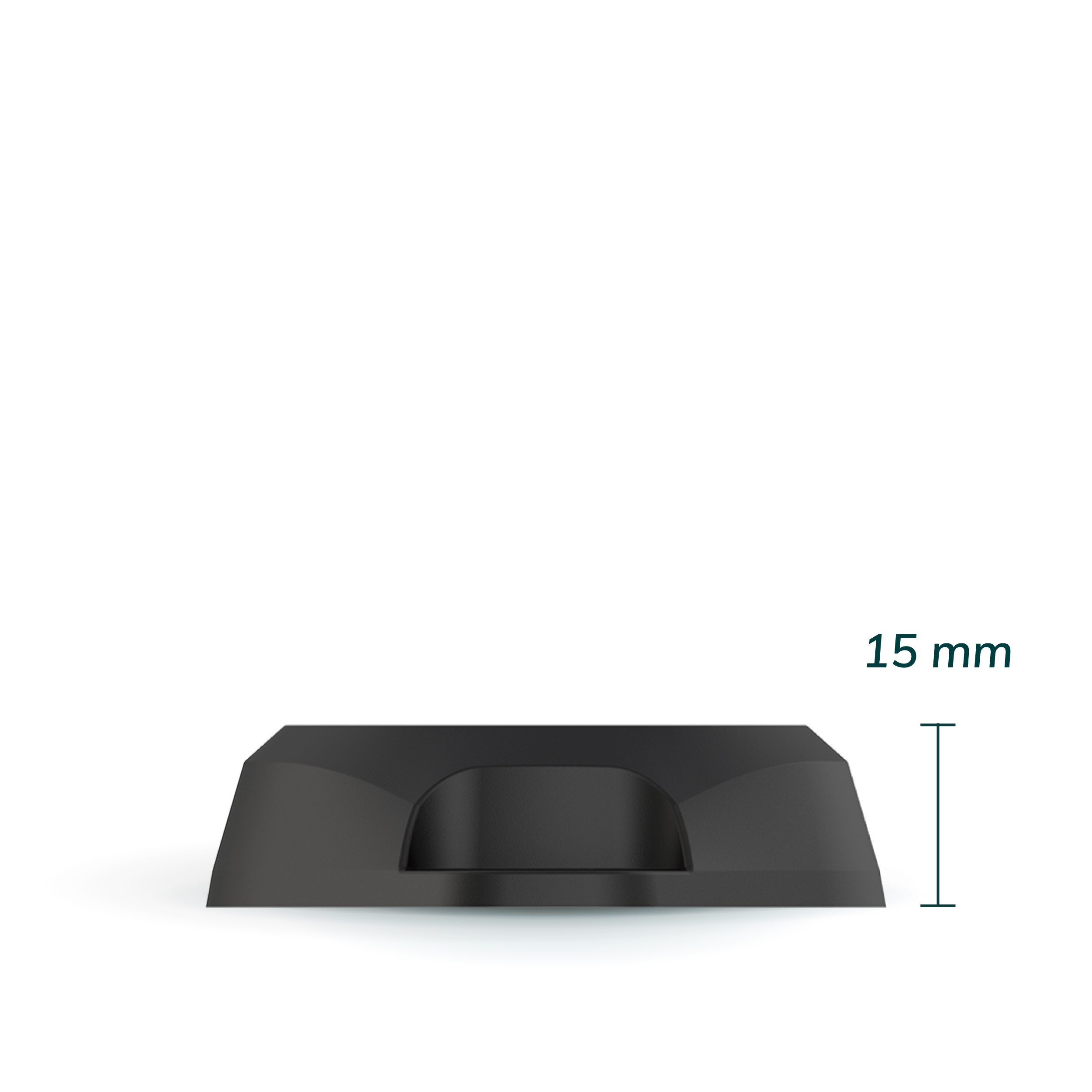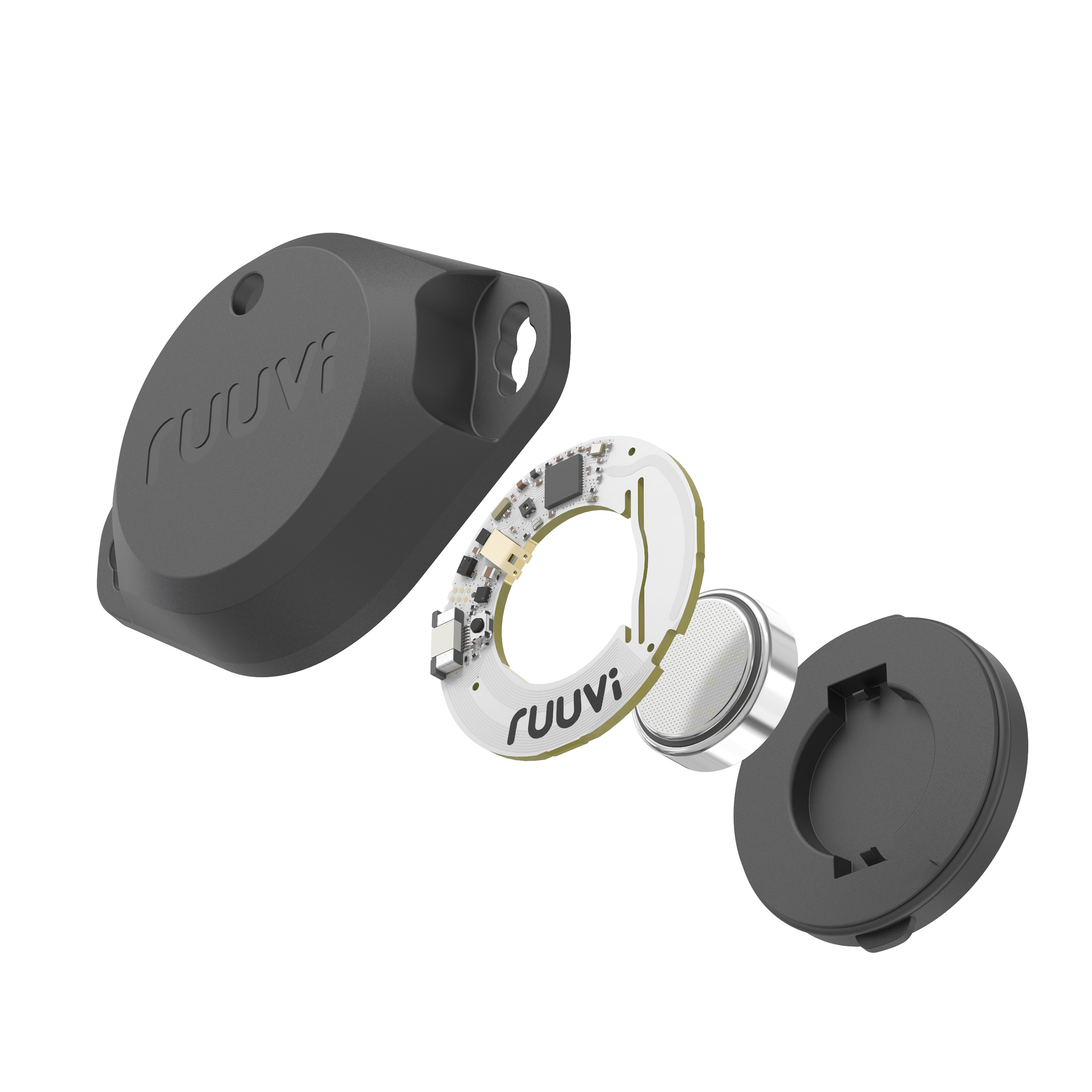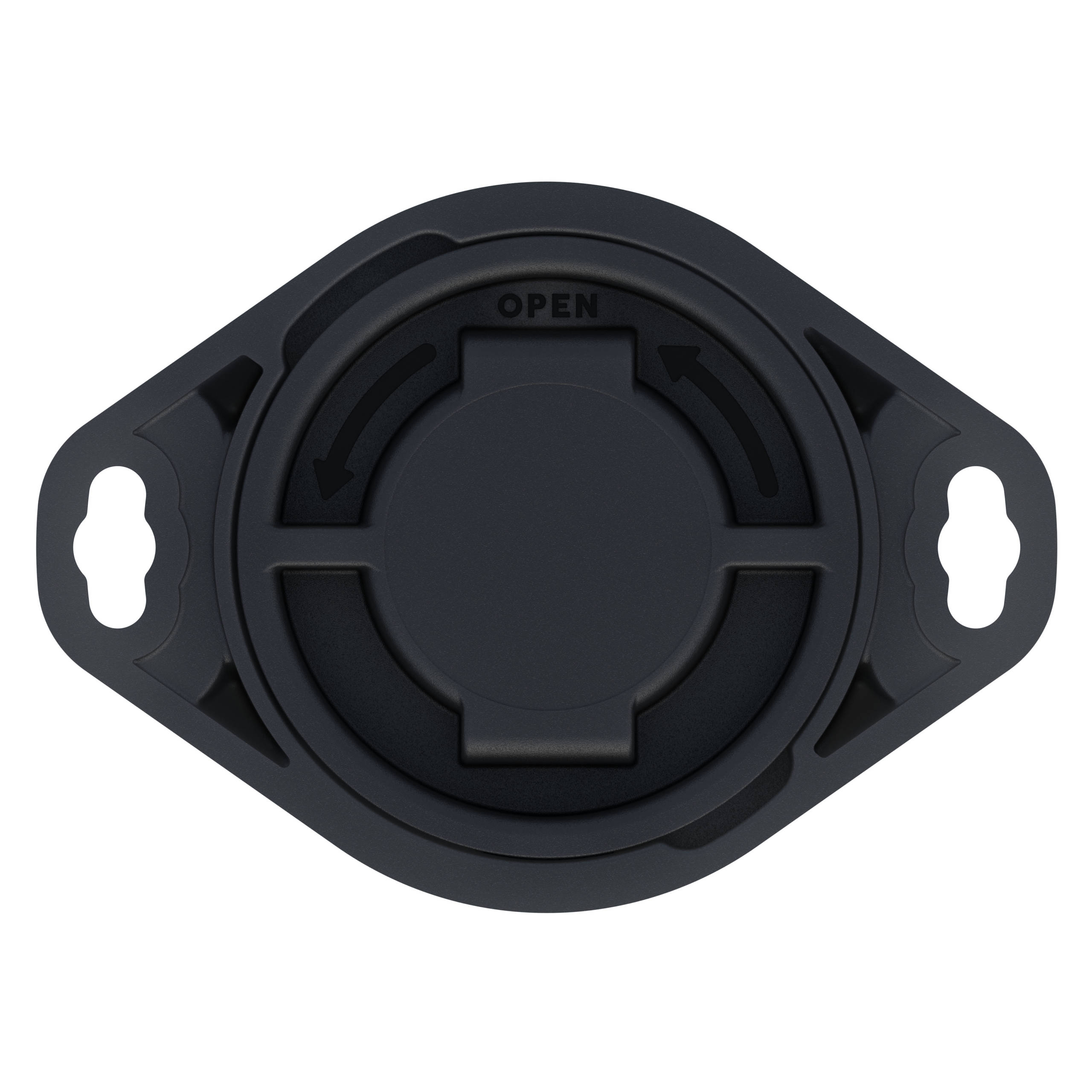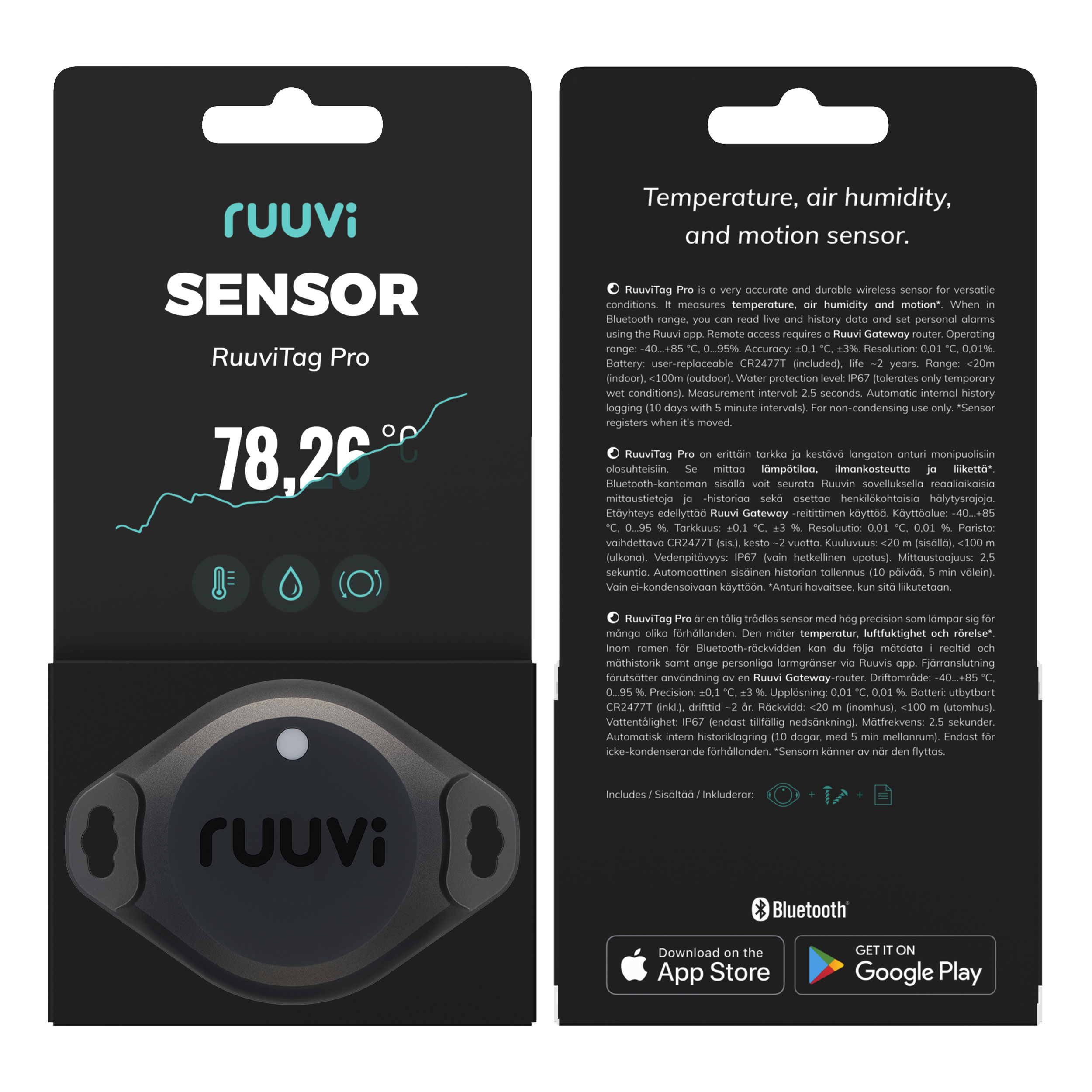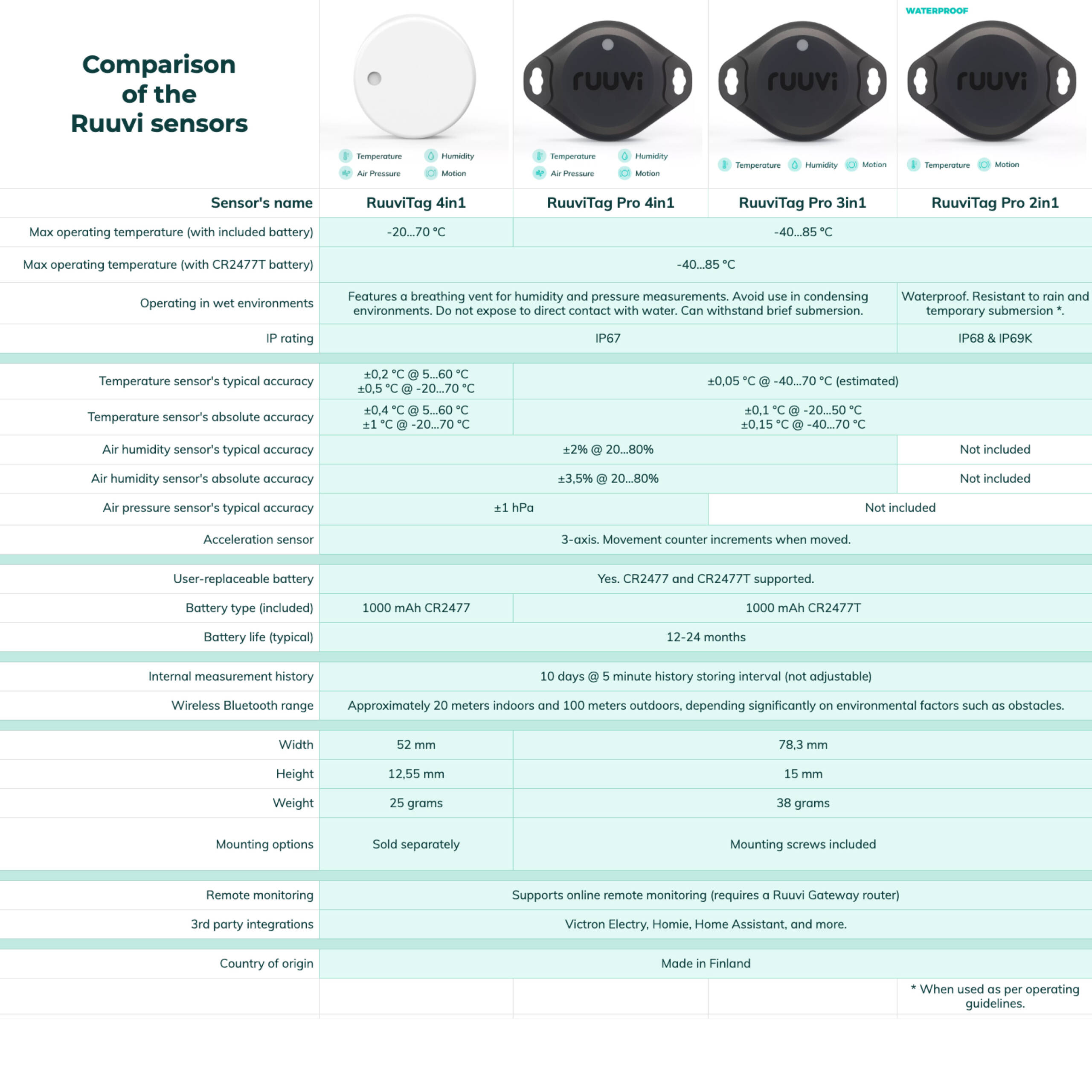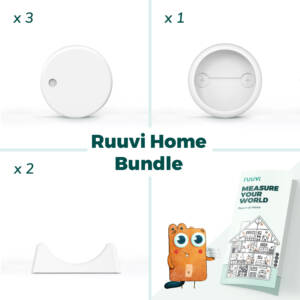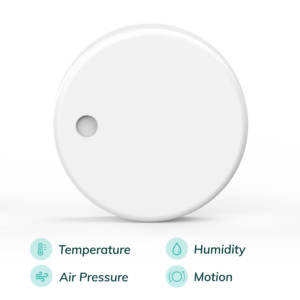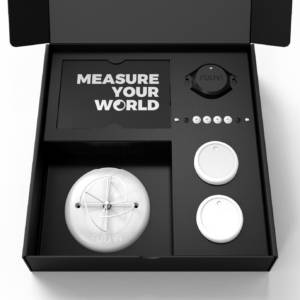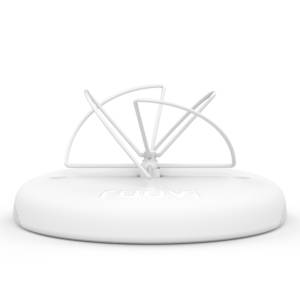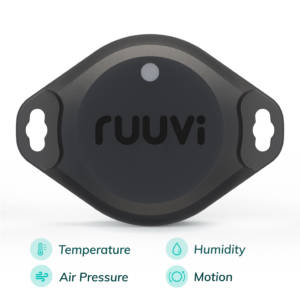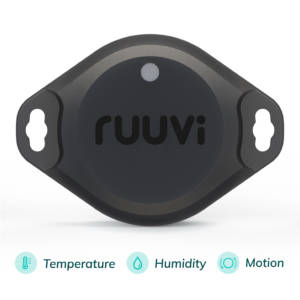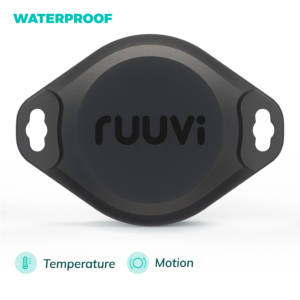This topic is a bit controversial. Some say that the water temperature is not that important to find fish. But others believe that it is one of the most important factors for fish activity. If that’s the case, then you will catch more fish with a fishing thermometer. With a fishing thermometer, you can find optimal fishing spots as well as be aware if fish are hungry or not.
Fishing thermometers can be used in streams to find the optimal temperature for specific fish species. They can also be used in still waters to locate possible hot or cold spots where the fish could be hiding. Also, by having access to a temperature data log, you can find trends and learn more about your fishing environment.
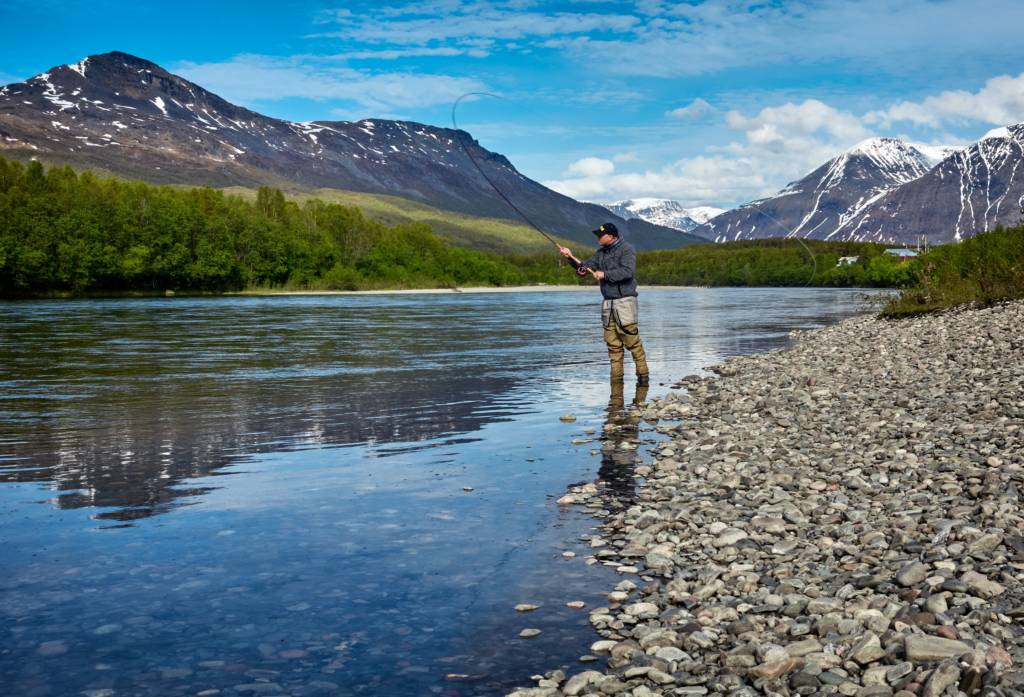
How does water temperature affect fish?
Fish are an ectothermic species. This means that their body temperature will change according to the temperature of their surroundings. In colder temperatures, fish will digest food slowly. They will also move less in colder water. In principle, the warmer the water, the more active the fish.
But, as with everything else, this is not so simple. When water temperature increases, the amount of dissolved oxygen decreases. So in very warm water, the fish will not have as much oxygen to move and hunt. Also, in warmer water, fish can catch diseases and parasite infections more easily.
| Water temperature | 10 °C | 15 °C | 20 °C | 25 °C |
| Dissolved oxygen | 11 mg/L | 10 mg/L | 9 mg/L | 8 mg/L |
When catching a bigger fish, remember that in warm water it can run out of oxygen faster. This is important for its survival if you do not intend to consume it as food.
How to use a fishing thermometer to catch more fish?
Having access to water temperature data can help you recognize good fishing spots. When the water temperature is warm, fish tend to move to spots where the water temperature is colder. These may be shadowy spots or a lower depth.
In cold water temperature, fish will move to slightly warmer spots. And almost all fish prefer steady water temperatures. They will know if the temperature changes even by a few tenths of a degree Celsius. Hence, you should try to go fishing when the temperature has been at a consistent level. If there has been a big difference in temperature, fish will most likely be very passive and you might be left without any catch.
- During spring, fish will move to warm spots. This is a great time to look for the warmest spots with a fishing thermometer.
- In rivers, streams can bring in cold water to the main river. That’s why you can find warmer spots on the upstream side of a stream with a fishing thermometer.
- When growing fish, a fishing thermometer can ensure that the temperature of the fish will not exceed harmful temperatures.

What’s the best temperature to catch fish?
The best temperature for fishing really depends on the fish species. All fish have their own preferences. But in general a range of 18 °C to 24 °C is a comfortable temperature for most fish.
Why should you choose a digital fishing thermometer?
Digital fishing thermometers are more accurate than analog thermometers. And, when you can read the temperature from your mobile device, you don’t need to dip your fingers in cold water. Also, digital thermometers can display graphs of the measured temperature inside an app which you can use to identify trends.
One major benefit of using digital thermometers is that they are more rugged. Also, as they don’t contain toxins, such as mercury, they are safer to use. If you hit a mercury thermometer against a rock and it breaks, toxins will go into the water and may be consumed by the species living there.
From most digital thermometers, you can download the data to Excel, for example. You can collect this data and compare it to your catch to improve your future chances of catching fish. Of course, many other aspects define the final outcome, but keeping data of a greater number of variables will help you improve your outcomes!
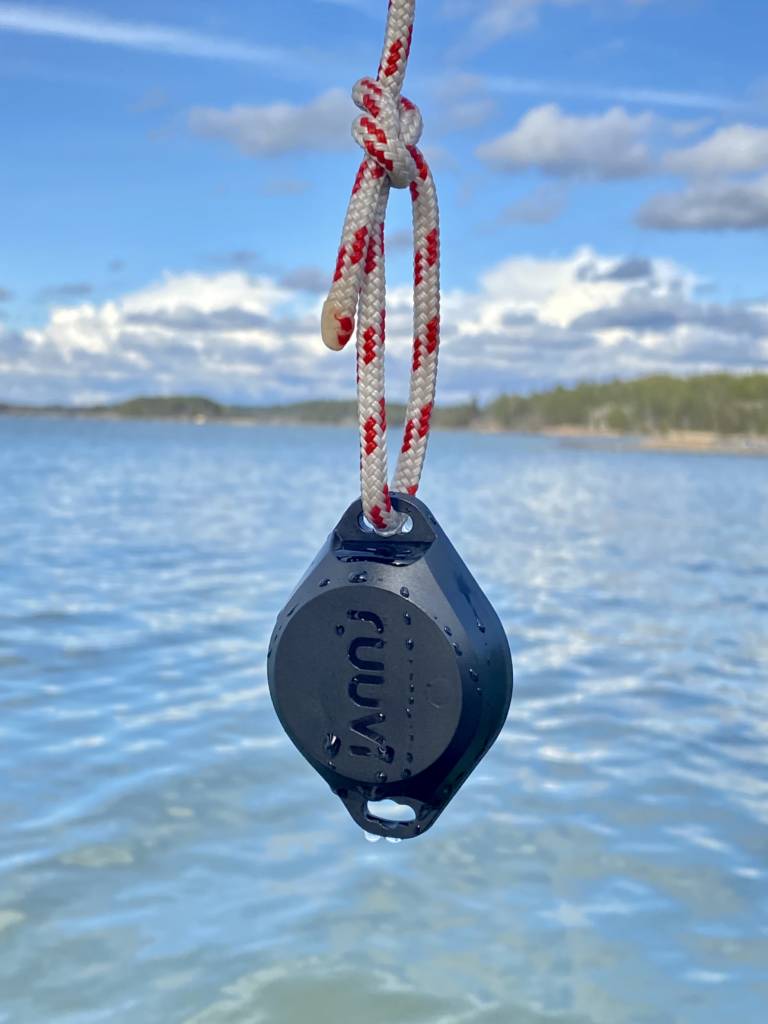
RuuviTag is a fishing thermometer for you
Finnish RuuviTag Pro 2in1 is completely waterproof. In more technical terms, it’s IP68 + IP69K certified. RuuviTag is a device working with Bluetooth. It measures temperature constantly, and it shares this measurement data wirelessly to your mobile device. RuuviTag comes in different models, which can measure air humidity and air pressure as well. But to be truly waterproof, the capsule of the RuuviTag Pro 2in1 must be completely shut.
You can use RuuviTag Pro in extreme conditions. Its usage limits are from -40 °C up to +85 °C. So, for fishing purposes, you can use it in every case.
Ruuvi’s easy-to-use application
RuuviTags works natively with a free Ruuvi app. Why did I say natively? That’s because Ruuvi is built with open source, so you can customise it to your liking, if you have the desire to play around. The Ruuvi app, however, is really all you need for fishing.
- It will show up to date measurements.
- It automatically creates graphs from the gathered measurements.
- You can create an alarm to notify you if the temperature changes.
- You can view all your RuuviTag’s measurements at the same time. In other words, you can check the water temperature, temperature inside your cool box as well as air humidity and temperature. You can set the alerts individually for all the measurements. That’s super handy for your coolbox, for example.
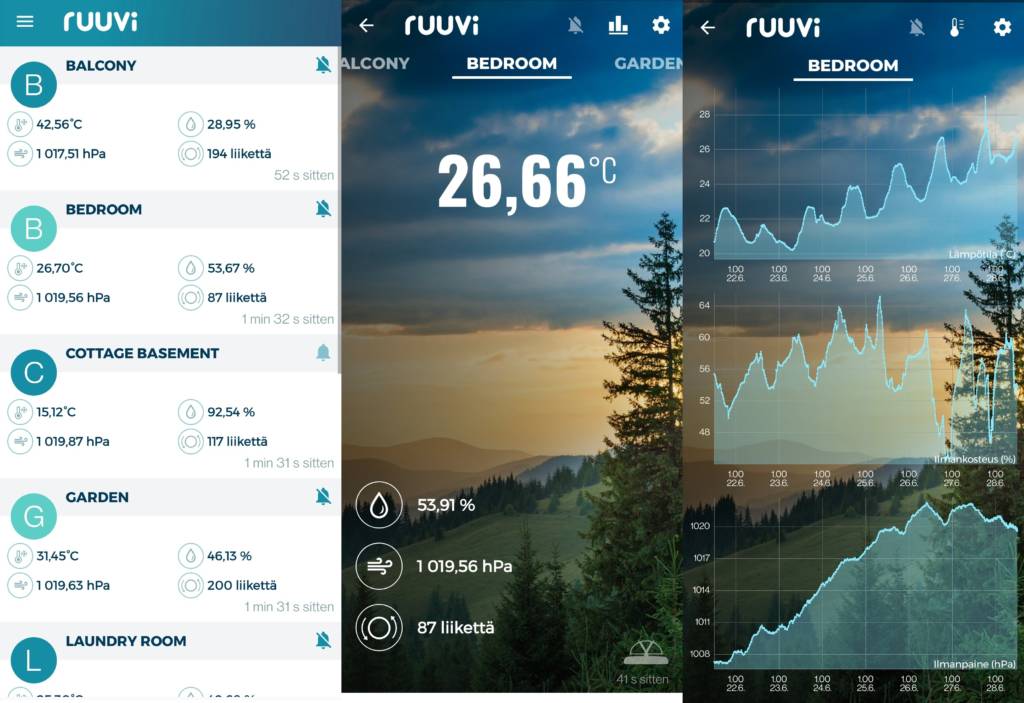
How to use RuuviTag in fishing?
The only problem with smart fishing thermometers is that Bluetooth signals don’t travel that well in water. You can’t receive measurements directly from the bottom of the water area. But you can read temperatures from the surface as well as read past measurements from the RuuviTag’s internal storage.
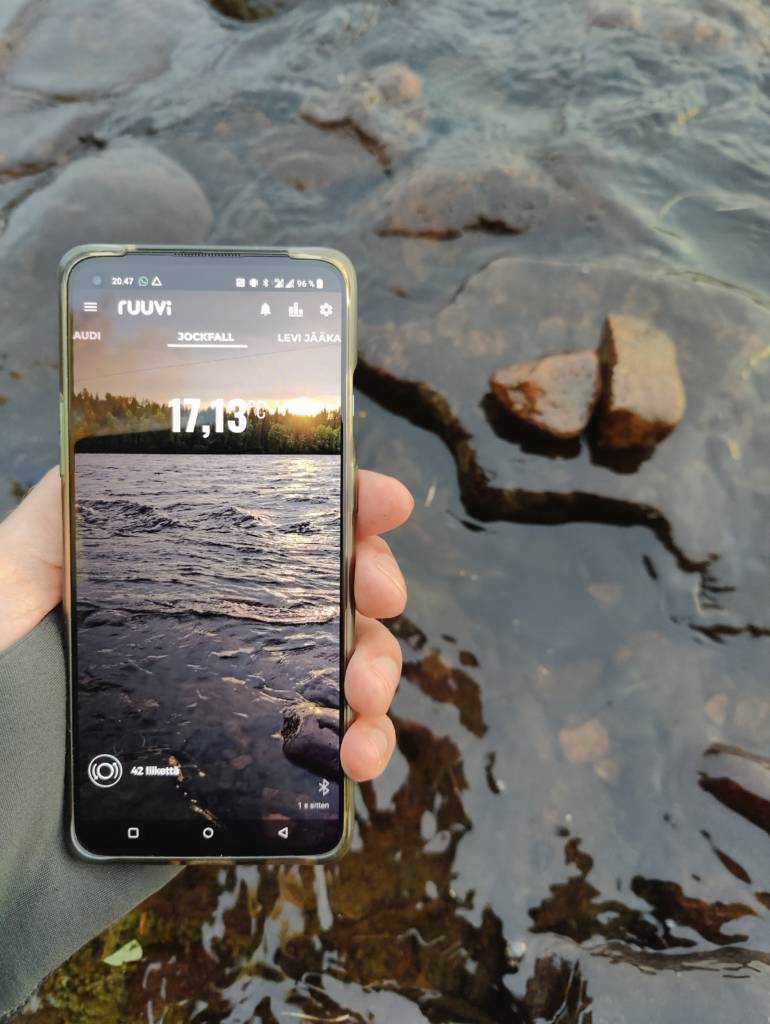
RuuviTag in a pair of waders
One friend of ours has used RuuviTag in his pair of waders. The RuuviTag Pro comes with two screw holes which are useful for mounting the device. He zip tied the RuuviTag to his ankle. Now, as he is walking around in a river, he can easily find warm spots to look for fish.
RuuviTag in a cool box
Another fishing friend of ours uses a RuuviTag in the cool box where he keeps the caught fish. With this smart thermometer, he is assured that the temperature is optimal at all times. In case the box heats unexpectedly, he will be alerted about it.
RuuviTag attached to a stick
You can screw RuuviTag to a longer stick. Alternatively, you can also zip tie it. Then, you can put the stick deeper in the water and find optimal depth for the fish of your liking. When you want to read the temperature of the water, just bring the RuuviTag closer to the surface for a brief moment.
RuuviTag as a thermometer in aquariums and fish tanks
If you are looking for a water thermometer to your aquarium or fish tank, RuuviTag gots you covered. For further information, check out our article discussing this topic here.
Conclusions
Water temperature is surprisingly an important part of fishing. Even though not everyone recognises this, you should pay more attention to it for better results. With a smart fishing thermometer you can conveniently add temperature data to your fishing information. Find the best spots, become aware of trends and keep your catch fresh with Ruuvi. Many fishermen have already tested this device and found it very useful.
Buy RuuviTag And Catch More Fish
By keeping track of the water temperature, you can take your fishing to the next level.
RuuviTag Pro Sensor
| Quantity | Unit Price(€) |
|---|---|
| 1 | |
| 5-10 | |
| 11-25 | |
| 26-50 | |
| 51-99 |
Are you looking for bigger quantities? Contact us for pricing.
FAQ
Do I need a fishing thermometer?
Yes you do! Water temperature plays a significant role in fish activity which is crucial for a successful fishing trip.
Is warm water temperature better for fish?
It depends. Basically, the warmer the water temperature, the more active the fish. But when water warms up, the amount of dissolved oxygen decreases, which will make fish less active on the other hand.
What temperature is too hot for fish?
Generally, 27 °C and higher is too warm for fish and in this temperature their health starts to decline.
Is a stream thermometer a necessity if you want to catch fish?
A good stream thermometer is not a necessity, but it can give you valuable data where to look for the best fishing spots. As the temperature of the water can vary and it has an effect on fish, with a stream thermometer you will be able to locate the sweet spots to look for most fish species.
